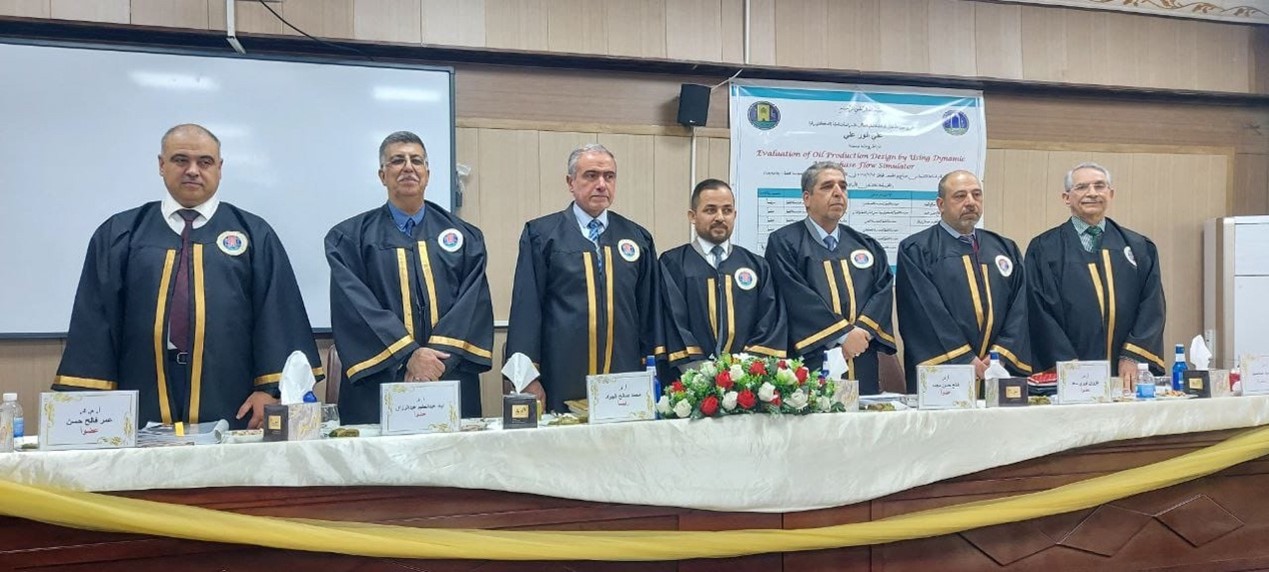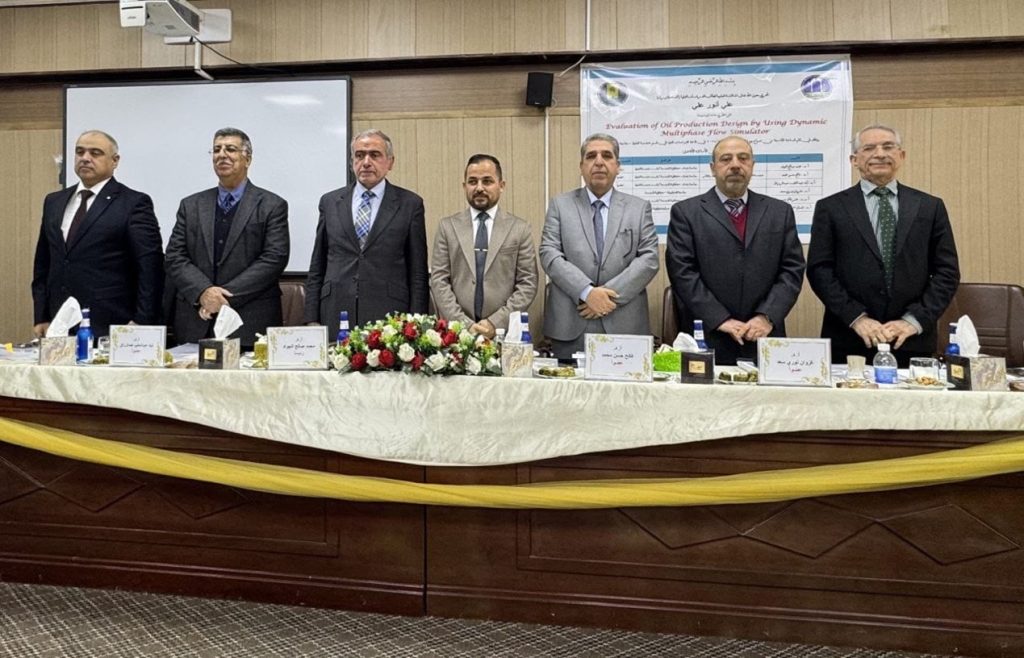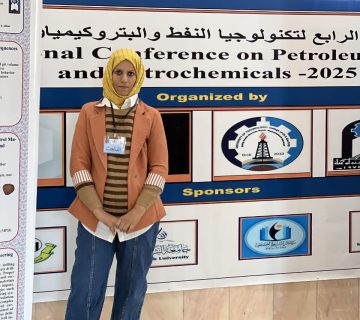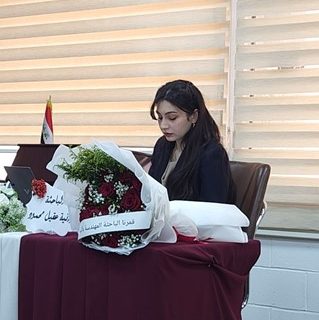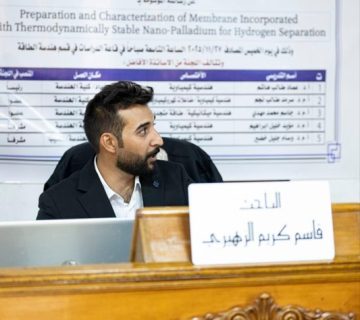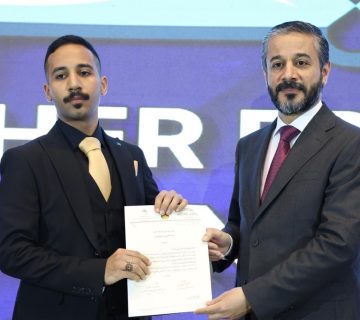On Thursday, February 13, 2025, the College of Engineering at the University of Baghdad held a public defense for the Ph.D. dissertation submitted by student Ali Anwar Ali from the Department of Petroleum Engineering, titled:
“Evaluation of Oil Production Design by using Dynamic Multiphase Flow Simulator”
The dissertation was supervised by the esteemed Professor Dr. Ghassan Hameed Abdul Majeed, and the defense took place in the postgraduate hall of the Department of Petroleum Engineering.
The examination committee consisted of the following members:
- Dr. Mohammed Saleh Al-Jawad – University of Baghdad / College of Engineering / Reservoir Engineering – Chair
- Dr. Faleh Hassan Mohammed – University of Baghdad / College of Engineering / Oil and Gas Drilling Technology – Member
- Dr. Iyad Abdul Haleem Abdul Razaq – University of Baghdad / College of Engineering / Drilling Engineering – Member
- Dr. Ghazwan Noori Saeed – University of Kufa / College of Engineering / Reservoir Engineering – Member
- Prof. Dr. Omar Faleh Hassan – University of Baghdad / College of Engineering / Reservoir Engineering – Member
- Dr. Ghassan Hameed Abdul Majeed – University of Baghdad / College of Engineering / Production Engineering – Member and Supervisor
Study Objective:
The study aimed to analyze and understand the mechanisms of hardened asphaltene deposition inside production tubing in the Bazargan Oil Field, using advanced mathematical models and dynamic thermal multiphase simulation, alongside machine learning techniques, with the goal of minimizing production losses and ensuring flow continuity.
Key Findings:
The dissertation relied on three Equations of State (EOS) to study asphaltene deposition behavior. Simulation results from OLGA and Multiflash software were integrated with physical particle movement models. In addition, a machine learning model was developed using the XGBoost and StackingCVRegressor libraries to predict the thickness and location of deposition in four selected wells.
Conclusions:
The used EOS models produced reliable and closely matched results. The SF model was adopted as the closest to real data and was used in sensitivity studies. The most influential factors in asphaltene deposition were found to be reservoir pressure, tubing diameter, and wellhead pressure. The developed model demonstrated high efficiency in enhancing production design and reducing the risk of tubing blockage caused by asphaltene buildup.
After an in-depth scientific discussion by the examination committee, and following the student’s defense and evaluation of the dissertation, the committee decided to award Ali Anwar Ali a Ph.D. in Petroleum Engineering, wishing him continued success in his academic and research career.

